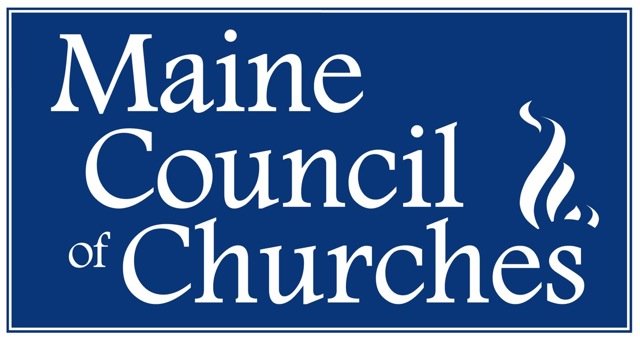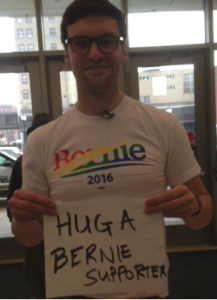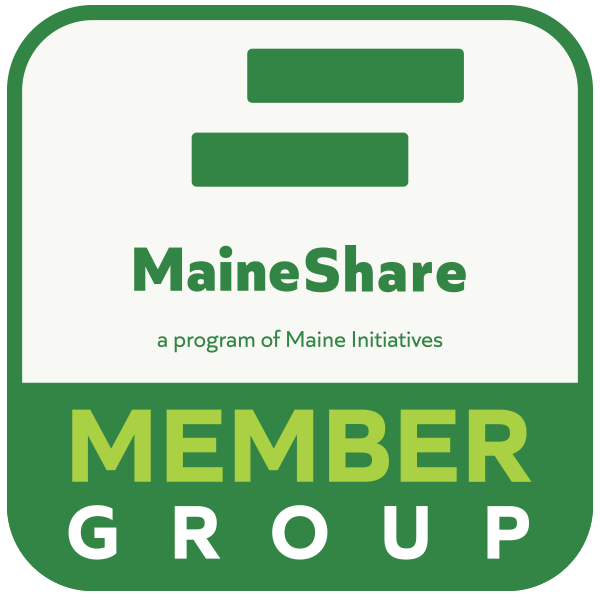Meeting Hatred With A Question

March 18, 2016
Like many, I was appalled and shaken by what went on at the political rallies for Donald Trump last weekend. And while his rhetoric, bigotry, fear-mongering and incitement to hatred were deeply troubling, I think it was the behavior of the crowd I found most chilling. You’ve probably seen the video clips and photo close-ups of his supporters, faces contorted with hatred and rage, fists swinging with vicious punches, as they confronted protesters. Even those who were peacefully protesting outside the arena had signs ripped from their hands, torn into pieces, and thrown back in their faces. Often it was white aggressors attacking black protesters, though few news commentators seemed to acknowledge the racial dynamic of what was unfolding in front of them. As protesters were removed from the rally, the crowd yelled horrible things. From the podium, Trump sneered, “Where are these people coming from? Who are they?” and a woman in the crowd yelled back, “Well, hopefully when you’re president, you’ll get rid of ‘em all!”
Really? Get rid of them? Get rid of anyone who opposes your way of thinking, verbally attack anyone whose opinion differs from yours, physically attack those who do not share your world view? That kind of response to political disagreement is simply not compatible with democracy. And for those of us in the faith community, it is simply not compatible with the life God calls us to lead, either.
Responding like that to people with whom we differ just hardens the most intolerant feelings and impulses on both sides. It leads to escalation, and it shuts down the possibility of communication. In the bible, such exchanges are often described as times when “hearts are hardened,” and when people become “stiff-necked,” ancient and poetic images that seem well-suited to the events we witnessed last weekend.
Reflecting on the shocking lack of civility in today’s political arena, Jim Wallis, of Sojourners magazine, wrote, “We need to behave differently, for both the sake of our spiritual integrity and the health of our democracy. We have forgotten some of the key values of faith: respect, truth, honesty, humility, patience, kindness, confession, forgiveness, prayer… It is time to recover them again.”
But how? Adam Zolkover, Temple University professor and editor of the online think tank “Institute for Civility in Government,” suggests that one way forward may be to practice the sort of civility that allows us to perceive the humanity in those we think of as our enemies, and to take their needs and beliefs seriously. He recalls Dr. King’s 1967 “Beyond Vietnam” speech in which he reflects on the value of compassion and nonviolence: “It helps us to see the enemy’s point of view, to hear his questions, to know his assessment of ourselves. For from his view we may indeed see the basic weaknesses of our own condition, and if we are mature, we may learn and grow and profit from the wisdom of the brothers who are called the opposition.” Those of us rooted in the Hebrew and Christian scriptures hear the echoes of Jesus’ words in the gospels of Matthew and Luke: “Love your enemies, pray for those who persecute you, do good to those who hate you.”
Zolkover writes, “Violent words breed only more violent words and ultimately violent deeds. But if instead we meet hatred with a question – if we require our opponents to account for themselves and their hate – we humanize them, and we humanize ourselves to them…that, more than any violence, has the potential to undo hate.”
His words reminded me of a video that MCC Vice-President Allen Ewing-Merrill told me about this week. It’s gone viral on YouTube—maybe you’ve seen it. At the end of January, a reporter from the Independent Journal Review wearing a “Trump for President” t-shirt and holding a sign that read “Hug a Trump Supporter” waited outside after a Bernie Sanders rally in Iowa and had a friend film what happened. One week later, the same reporter waited outside a Donald Trump rally wearing a “Bernie 2016” t-shirt and holding a sign that read “Hug a Bernie Supporter,” and filmed that, too. At both events, the reporter received a surprising number of hugs from his “opponents.” As you watch his interactions with people, it becomes clear that what you’re seeing is the “humanizing of an enemy” that Zolkover, King, and Jesus are all talking about.
Click the images below to view the videos of this reporter’s experience at two presidential campaign rallies earlier this year.
At the end of the short video, the IJR reporter looks into the camera and says, “We can overcome our differences, no matter whose side you’re on.”
May it be so.
Rev. Jane Field
Executive Director
(For faith-based resources promoting civility in political discourse, see the Maine Council of Churches website, click on “Programs” and then “Civil Discourse.” Check out the UCC program “One Faith, One Vote” at ucc.org/onefaithonevote. And be sure to mark your calendars for MCC’s biennial election year civil discourse symposium on October 20 in Waterville: “A Citizen’s Guide To Halting the Hate-Mongering: What We Can Do To Promote Civility in Politics,” featuring keynote speaker Senator George Mitchell and a panel of four Maine state legislators.)



